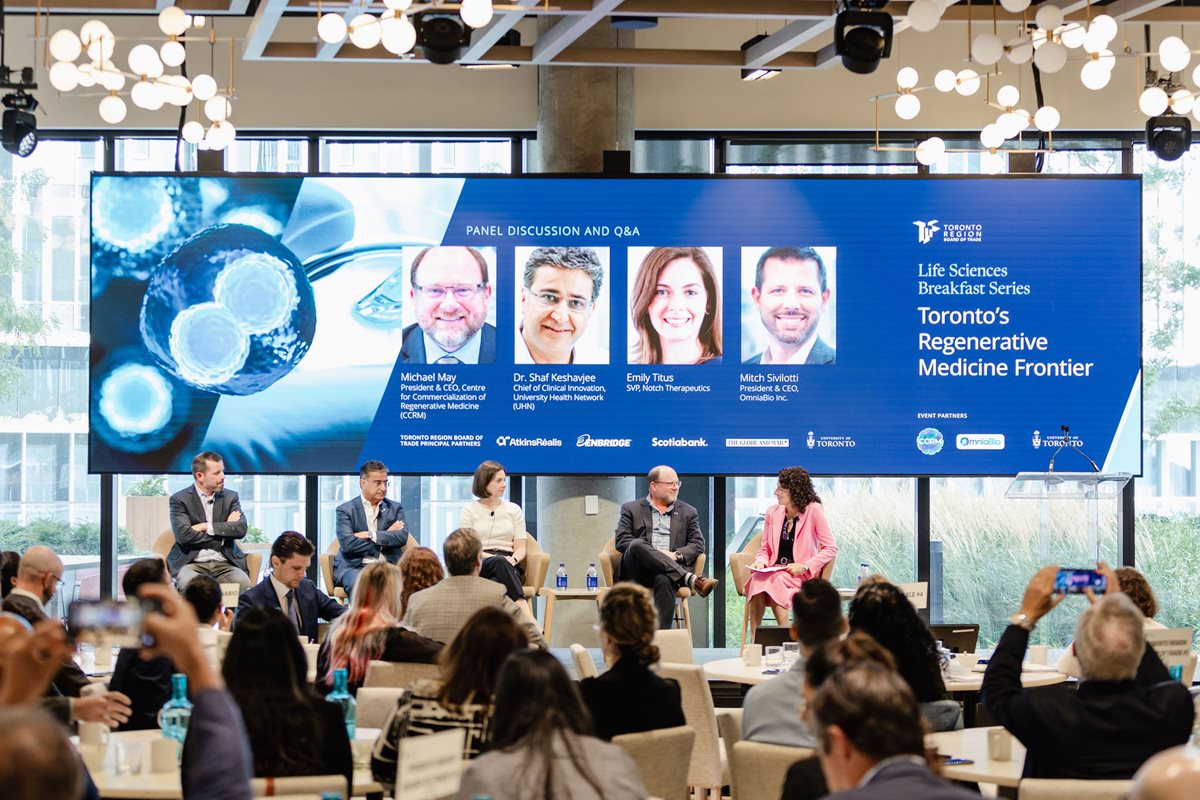
“It takes a village to raise a child, in life sciences it takes an ecosystem.” Those were the powerful words of Alison Nankivell CEO of MaRS Discovery District as the Toronto Region Board of Trade capped off its most recent foray into Life Sciences with an in-depth event focused on regenerative medicine.
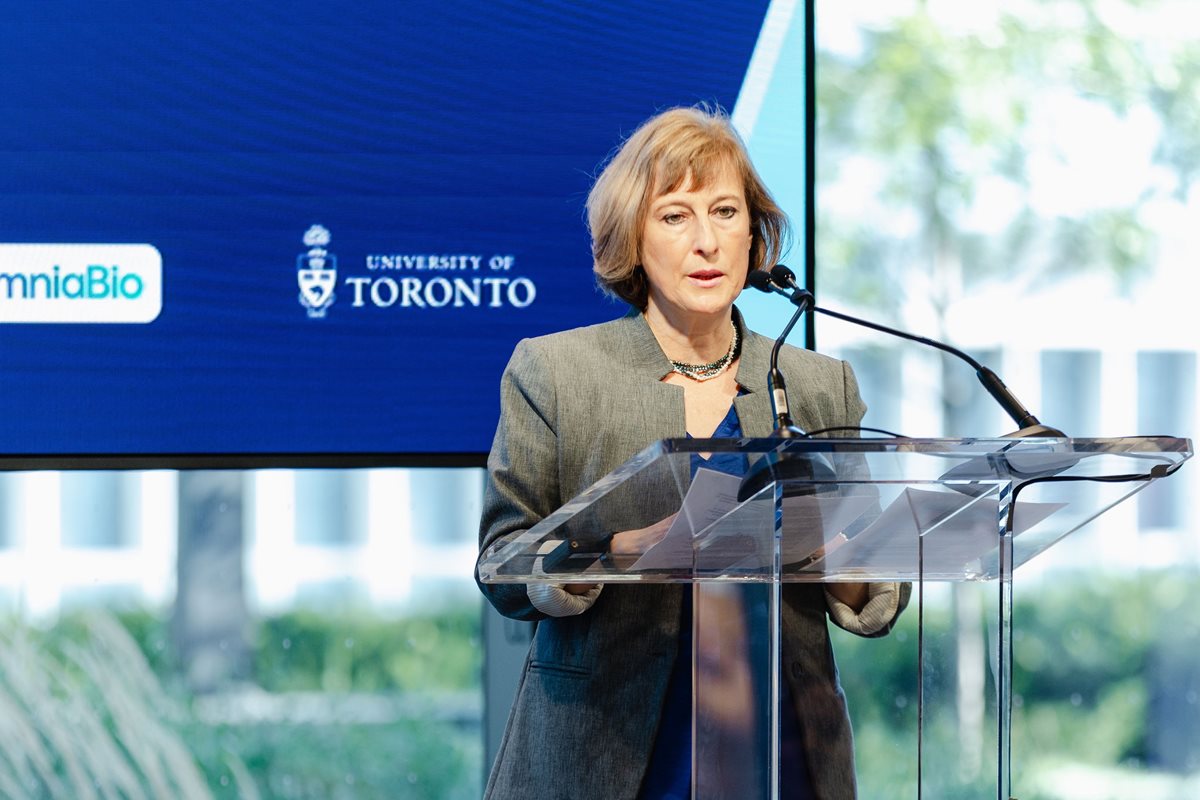
While regenerating superheroes Deadpool and Wolverine brought regenerative science to the big screen, the Board brought Canada’s leading experts on real-world regenerative medicine to its podium for a fascinating deep dive into the importance and future of regenerative medicine here in the Toronto region.
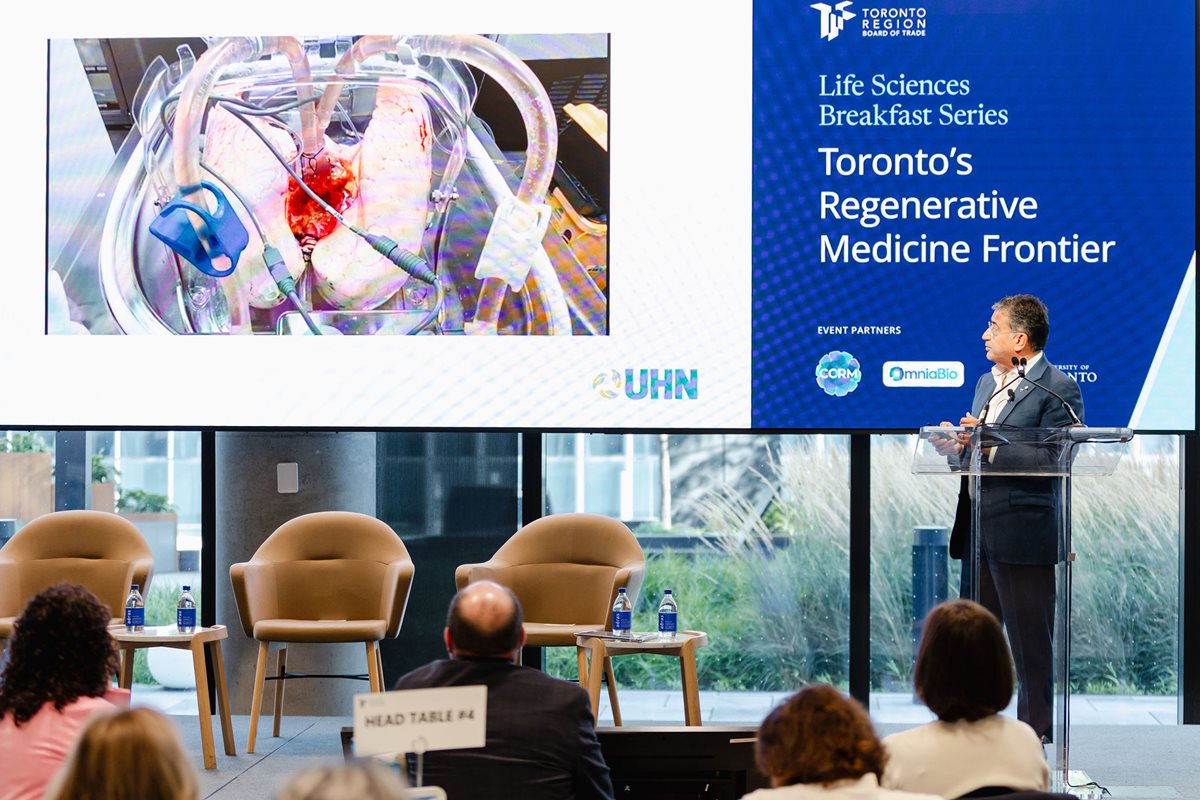
In truth, regenerative medicine is anything but fiction, and more importantly, as we heard from Dr. Shaf Keshavjee Chief of Clinical Innovation, University Health Network, it’s an emerging pillar of the Toronto region’s life sciences ecosystem. Our strengths in regenerative medicine have attracted global attention, and our expertise in cell and gene therapy treatments continues to yield spectacular clinical results. He pointed out that in Toronto, regenerative science is being used in pioneering surgical treatments, especially in the context of lung transplants.
Though Toronto is a global powerhouse in research and development, the sector has struggled to translate its research into commercially viable companies. In a fireside chat expertly guided by Dr. Maura Campbell, President and CEO of Ontario Bioscience Innovation Organization (OBIO), the speakers shared their perspectives on what comes next for Toronto’s life sciences sector, and explored the challenges, such as accessing capital and scaling medtech companies.
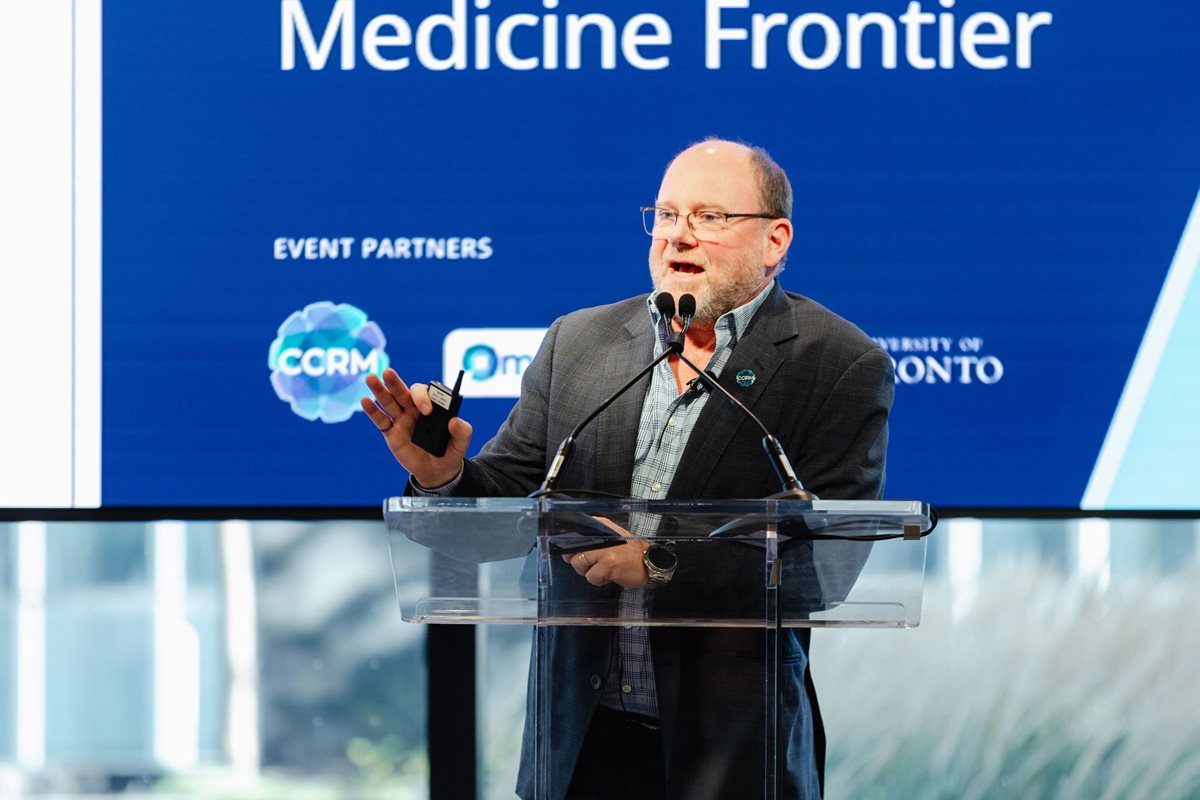
Dr. Michael May, President & CEO of Centre for Commercialization of Regenerative Medicine (CCRM), shared his vision for Life Science commercialization in Toronto, and the role CCRM is playing to anchor the ecosystem. He pointed out that, the commercialization of medical technologies, scaling of homegrown MedTech companies, and building manufacturing capacity are the important next steps for Toronto as the sector looks to keep the economic benefits of our life sciences here at home.
Through the incredible work of organizations like MaRS and CCRM, leaders like Dr. Michael May are laying the foundation for a productive, profitable, and sustainable life science ecosystem that harnesses, research, philanthropy, venture and institutional capital to become world leaders in regenerative science.
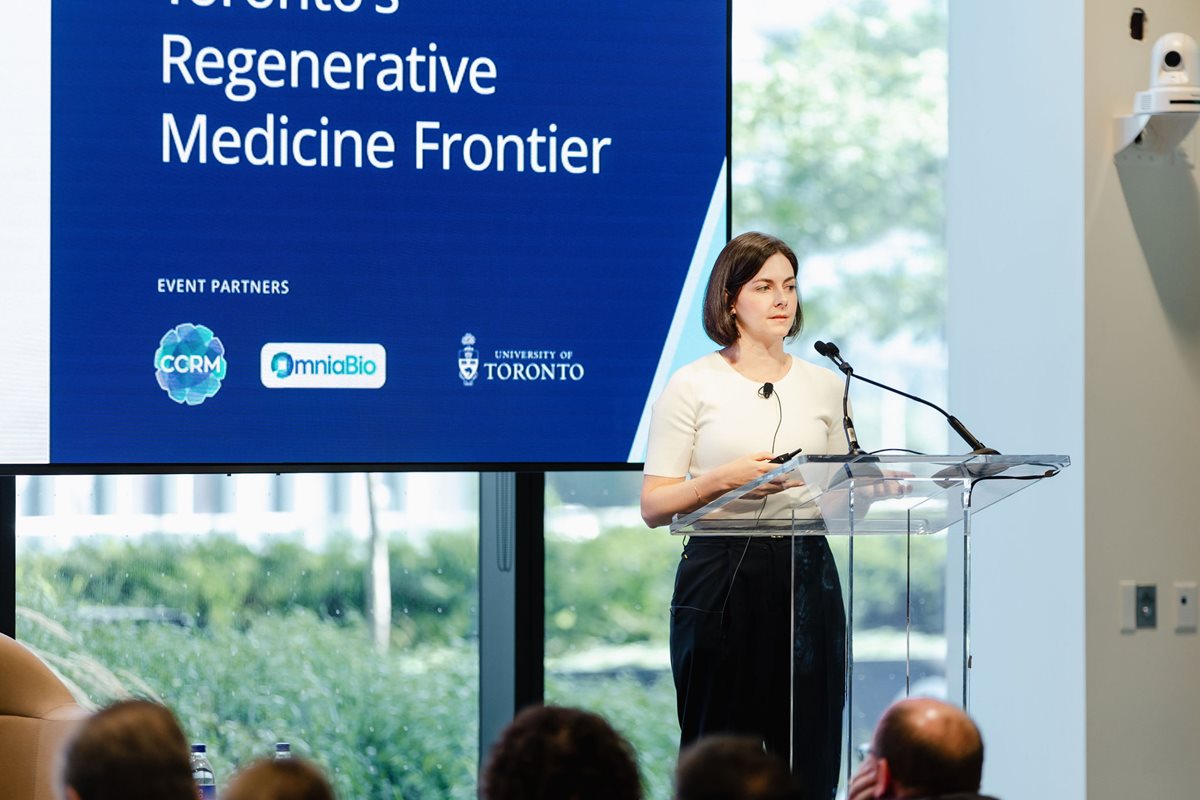
Guests also heard from two of CCRM’s most successful ventures, Mitch Sivilotti, CEO of OmniaBio Inc. and Emily Titus, Senior Vice President at Notch Therapeutics. Both speakers highlighted the potential they have as homegrown life science startups, and how they contribute to the broader life sciences ecosystem.
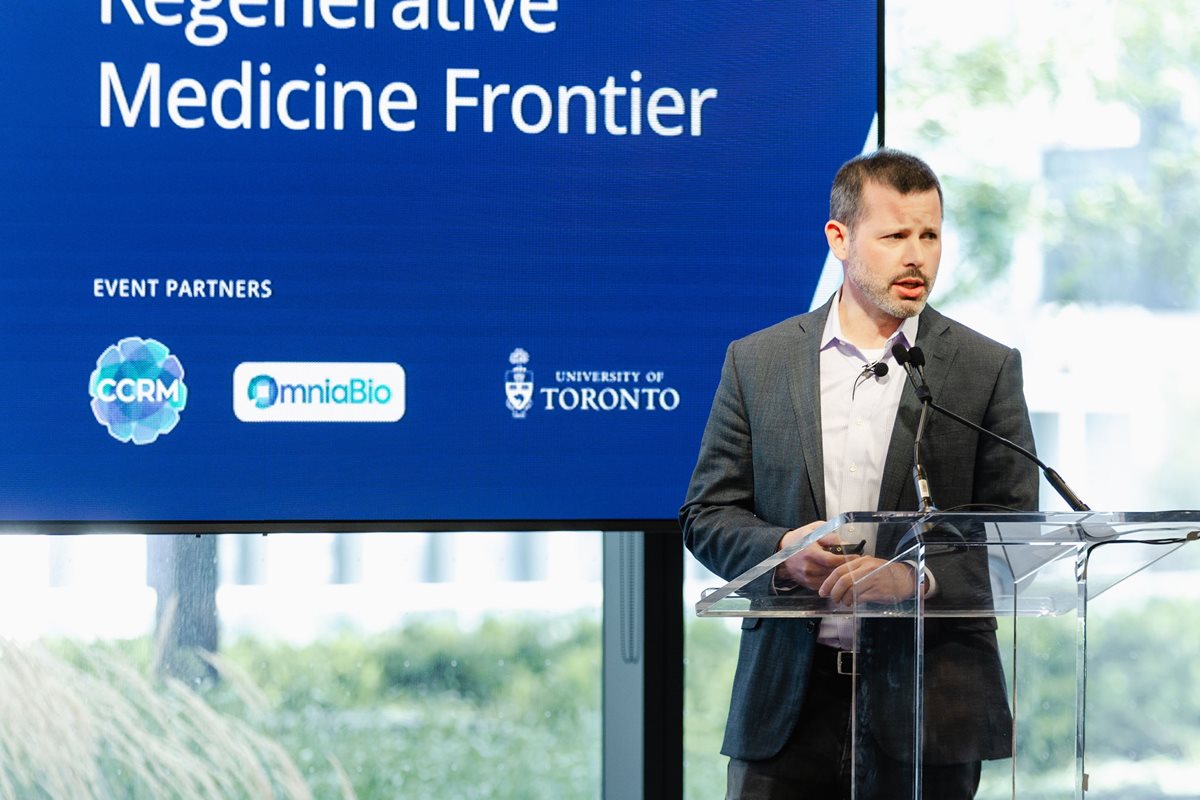
“We can’t keep giving our discoveries away for free,” said Roselle Martino, the Board's Executive VP, Policy, Advocacy & Stakeholder Engagement. She finished off the series with her closing remarks, reminding the audience about our region’s pedigree in the life science sector.
Toronto’s life sciences sector has all the tools it needs for success, and regenerative medicine is a critical player that will help scale-up the sector.
Earlier this year, the Board set out to answer the question, “Can Toronto become the Next Boston?” The response from life science leaders and experts has been clear: Toronto is a life sciences city and it doesn’t have to be like Boston to be successful. Through collaboration on a shared vision Toronto can be a global life sciences hub and MedTech leader and bring wealth and prosperity to our region. We’re moving in the right direction.
Thank you to our partners who made this event possible.


